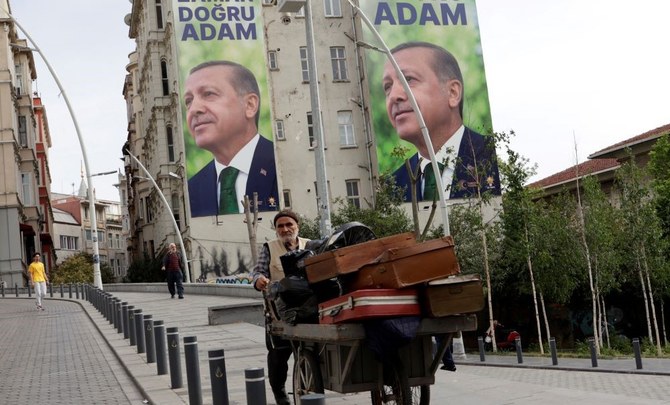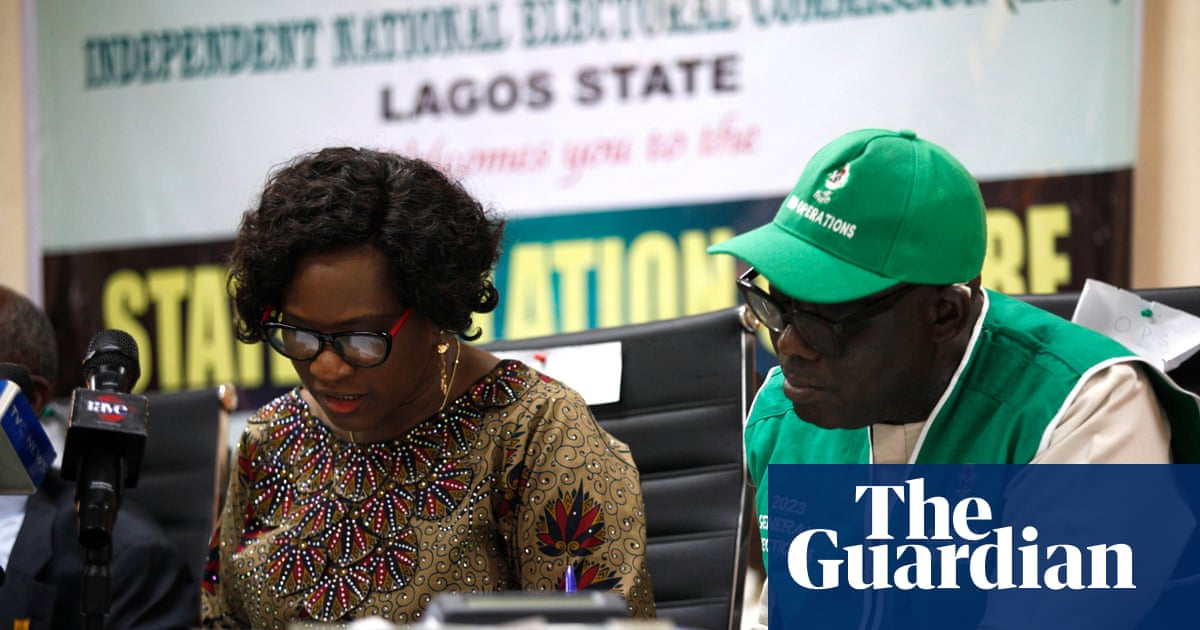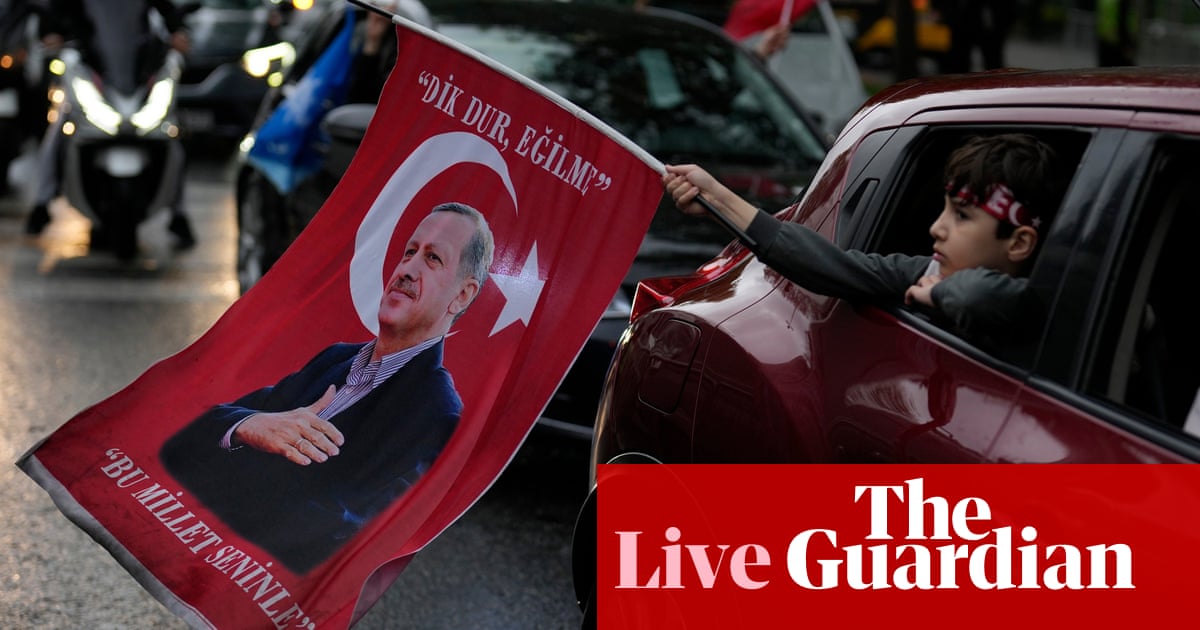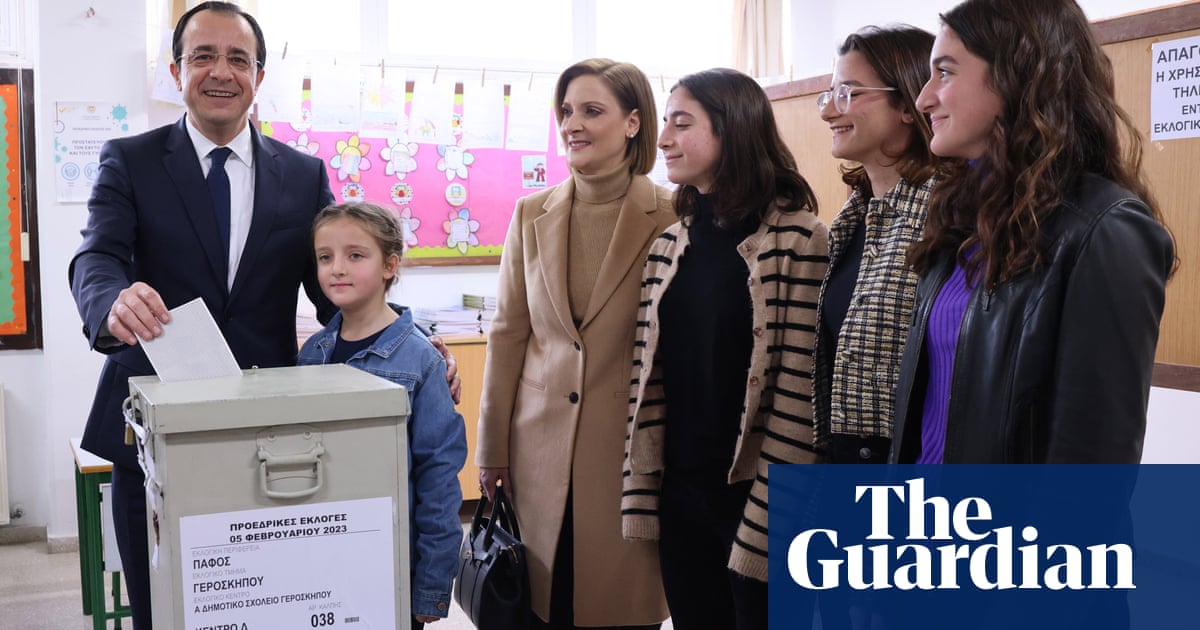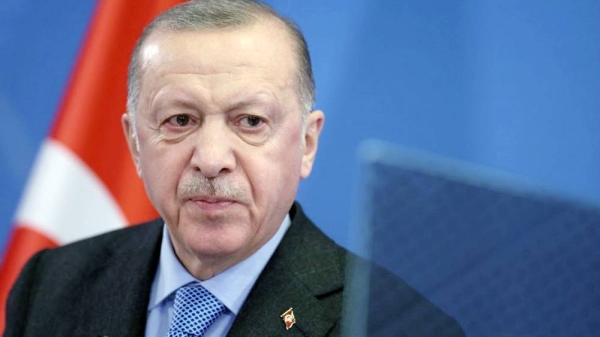
Preliminary results in Turkey’s presidential runoff vote on Sunday showed President Recep Tayyip Erdogan ahead of his rival as the leader fights to stretch his rule into a third decade.
With 91.55% of the ballots counted, Erdogan received 52.61% of the votes, according to unofficial preliminary results published by state-run Anadolu agency, while opposition leader Kemal Kilicdaroglu received 47.39%.
Voter turnout is 85.41%, according to Anadolu.
With the election results not yet official, Erdogan appeared to be taking a victory lap outside his residence in Istanbul, singing in celebration on top of a campaign bus. Addressing a large crowd of jubilant supporters waving the Turkish flag, he thanked the nation.
“We completed the second round of the presidential election with the favor of our nation. I would like to express my gratitude to my nation for giving us a day of democracy,” Erdogan said.
“The winners of both the May 14 elections and the May 28 elections are all our 85 million citizens,” he added, referring to the two election rounds.
Foreign leaders including those of Qatar, Libya, Algeria, Hungary and the Palestinian Authority were among those to congratulate Erdogan for a win ahead of the completion of the official vote count.
“This is not a crushing defeat for those who wanted change,” Asli Aydintasbas, a Visiting Fellow at Brookings Institution, told CNN’s Becky Anderson. “We are once again looking at a divided country ... both camps want entirely different things for Turkey.”
Earlier on Sunday, Erdogan asked his supporters “to stay at the ballot boxes until results are finalized.”
“Now is the time to protect the will of the people which we hold in the highest esteem,” Erdogan wrote on his Twitter account.
Every Turkish citizen has a right to watch the vote count at their ballot boxes, and doing so has become something of a tradition in Turkey.
Spokesman for Turkey’s main opposition Republican People’s Party (CHP), Faik Oztrak, seemingly warned Erdogan against carrying out any speeches to supporters until the official election results have been announced.
“No one should muddy the waters with balcony speeches,” Oztrak said on Sunday, referring to Erdogan’s traditional election-night style speech. “We’re sending a clear warning: No one should try to make this into a ‘fait accompli’ until the results are final.”
“I say this with emphasis: we’ll protect the will of the nation until the end and we will win,” he said.
Erdogan is going head-to-head against Kilicdaroglu, a 74-year-old bureaucrat and leader of the left-leaning CHP.
In the first round of voting on May 14, Erdogan secured a nearly five-point lead over Kilicdaroglu but fell short of the 50% threshold needed to win.
The president’s parliamentary bloc won a majority of seats in the parliamentary race on the same day.
Erdogan cast his vote at a voting center in Istanbul on Sunday. “This is a first in Turkish democratic history,” he said.
“Turkey, with nearly 90% participation in the last round, showed its democratic struggle beautifully and I believe it will do the same again today,” he added.
Kilicdaroglu cast his vote in Ankara, telling reporters: “In order to get rid of the oppression and to get rid of this authoritarian leadership, to bring real democracy and freedom, I call on all citizens to go vote and to stand by the ballot boxes after.
“Because [the] election was held under hardships, all sorts of black propaganda and slander was used but I trust in the common sense of the people.”
Electoral authorities said voting was passing “without any issues” and that results should come sooner than in the first round.
Last week, third-place candidate Sinan Ogan, who won 5% of the first-round vote, publicly endorsed Erdogan, further boosting the strongman leader’s chances of winning Sunday’s second and final presidential round.
Many polls had incorrectly predicted that Kilicdaroglu would lead in the May 14 vote, which saw a high turnout of nearly 90% across the country.
Six opposition groups had formed an unprecedented unified bloc behind Kilicdaroglu to try to wrest power from Erdogan.
The opposition has described the election as a last stand for Turkish democracy, accusing Erdogan of hollowing out the country’s democratic institutions during his 20-year rule, eroding the power of the judiciary and repressing dissent.
Erdogan also faces headwinds from a floundering economy and a shambolic initial response to a catastrophic earthquake on February 6 which claimed more than 50,000 lives in Turkey and neighboring Syria.
The government acknowledged its “mistakes” in its rescue operation and apologized to the public.
Erdogan’s critics also spotlighted loose construction standards presided over by the ruling AK party, which turbocharged a construction boom since the early 2000s, and exacerbated the death toll.
They also argued that the earthquake response underscored Erdogan’s alleged hollowing out of government entities in his bid to consolidate power.
The country’s financial crisis — which saw the currency plummet and prices soar — is also partially blamed on Erdogan’s policies. The president suppressed interest rates leaving inflation unfettered, critics argued.
But electoral results on May 14 showed continued support for the president in his conservative strongholds, including in the devastated earthquake zone.
In an interview with CNN’s Becky Anderson last week, Erdogan vowed to double down on his unorthodox economic policies, arguing that interest rates and inflation were “positively correlated.”
He also hailed his relationship with Russian President Vladimir Putin as “special” and said he would continue to block Sweden’s access to NATO, despite Western criticism that he was obstructing a unified front against Russia’s invasion of Ukraine.
Erdogan, who controls the second-largest army in NATO, accused Sweden of harboring Kurdish terror groups and has preconditioned Stockholm’s accession on the extradition of wanted individuals.
Sweden has refused Turkey’s repeated requests to extradite individuals Ankara describes as terrorists, arguing that the issue can only be decided by Swedish courts.
Since Russia launched its invasion of Ukraine in February 2022, the Turkish strongman has emerged as a key powerbroker, adopting a crucial balancing act between the two sides, widely known as “pro-Ukrainian neutrality.”
He helped broker a key agreement known as the Black Sea Grain Corridor Initiative that unlocked millions of tons of wheat caught up in Russia’s invasion of Ukraine, averting a global hunger crisis. The agreement was extended for another two months last Wednesday, one day before it was set to expire. — CNN




